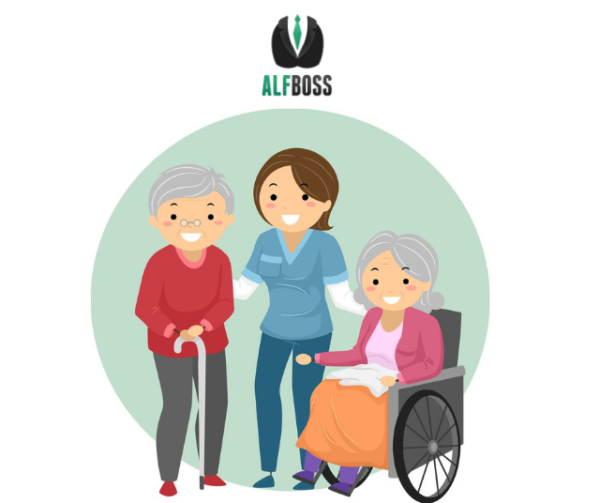
When developing a resident’s care plan, you should take all aspects of the resident assessment, physical examination, and interview into consideration. This valuable information is key to providing the resident with the right care at the right time. Residents need to be aware of what services they are scheduled for and the frequency in which you plan to perform them. Check out the following regulation for how you can stay compliant with the DOSS and what they expect for the general care of a resident:
22VAC40-73-460. Personal care services and general supervision and care.
- The facility shall assume general responsibility for the health, safety, and well-being of the residents.
- Care provision and service delivery shall be resident-centered to the maximum extent possible and include:
- Resident participation in decisions regarding the care and services provided to him;
- Personalization of care and services tailored to the resident’s circumstances and preferences; and 3. Prompt response by staff to resident needs as reasonable to the circumstances.
- Care shall be furnished in a way that fosters the independence of each resident and enables him to fulfill his potential.
- The facility shall provide supervision of resident schedules, care, and activities, including attention to specialized needs, such as prevention of falls and wandering from the premises.
- The facility shall regularly observe each resident for changes in physical, mental, emotional, and social functioning.
- Any notable change in a resident’s condition or functioning, including illness, injury, or altered behavior, and any corresponding action taken shall be documented in the resident’s record.
- The facility shall provide appropriate assistance when observation reveals unmet needs.
- The facility shall notify the next of kin, legal representative, designated contact person, or, if applicable, any responsible social agency of any incident of a resident falling or wandering from the premises, whether or not it results in injury. This notification shall occur as soon as possible but no later than 24 hours from the time of initial discovery or knowledge of the incident. The resident’s record shall include documentation of the notification, including date, time, caller, and person or agency notified.
EXCEPTION: If the whereabouts of a resident are unknown and there is reason to be concerned about his safety, the facility shall immediately notify the appropriate law-enforcement agency. The facility shall also immediately notify the resident’s next of kin, legal representative, designated contact person, or, if applicable, any responsible social agency.
- The facility shall provide care and services to each resident by staff who are able to communicate with the resident in a language the resident understands or shall make provisions for communications between staff and residents to ensure an accurate exchange of information.
- The facility shall ensure that personal assistance and care are provided to each resident as necessary so that the needs of the resident are met, including assistance or care with:
- The activities of daily living:
- Bathing – at least twice a week, but more often if needed or desired;
- Dressing;
- Toileting;
- Transferring;
- Bowel control;
- Bladder control; and
- Eating/feeding;
- The instrumental activities of daily living:
- Meal preparation;
- Housekeeping;
- Laundry; and
- Managing money;
- Ambulation;
- Hygiene and grooming:
- Shampooing, combing, and brushing hair;
- Shaving;
- Trimming fingernails and toenails (certain medical conditions necessitate that this be done by a licensed health care professional);
- Daily tooth brushing and denture care; and
- Skin care at least twice daily for those with limited mobility; and
- Functions and tasks:
- Arrangements for transportation;
- Arrangements for shopping;
- Use of the telephone; and
- Correspondence.
- Each resident shall be dressed in clean clothing and be free of odors related to hygiene. Each resident shall be encouraged to wear day clothing when out of bed.
- Residents who are incontinent shall have a full or partial bath and clean clothing and linens each time their clothing or bed linen is soiled or wet.
- The facility shall ensure each resident is able to obtain individually preferred personal care items when:
- The preferred personal care items are reasonably available; and
- The resident is willing and able to pay for the preferred items
Top Takeaways:
- The facility shall ensure that personal assistance and care are provided to each resident as necessary so that the needs of the resident are met, including assistance or care with:
- The activities of daily living:
- Bathing – at least twice a week, but more often if needed or desired;
- Dressing;
- Toileting;
- Transferring;
- Bowel control;
- Bladder control; and
- Eating/feeding;
One of the main reasons why seniors choose to move into an ALF is to receive assistance with their ADLs. Ensure the assistance with ADLs are scheduled for residents in a manner that will be most helpful to them.
- Care provision and service delivery shall be resident-centered to the maximum extent possible and include:
- Resident participation in decisions regarding the care and services provided to him;
- Personalization of care and services tailored to the resident’s circumstances and preferences;
When you hear “resident-centered” it essentially means to tailor your services based upon the unique needs of each resident, not a cookie-cutter one size fits all approach. Residents should have a say in the care they receive and be respected when they do not agree with the facility’s plan.